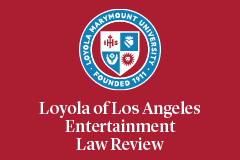Abstract
Google’s Autocomplete search feature has gained wide popularity as it allows users to perform search queries quickly by suggesting several search terms in real-time as users type a search request in the Google search bar. These generated suggestions change in an algorithmic manner with each additional letter that a user types into Google’s search bar while conducting a search. They are based in part upon predictions made from previous users’ searches as well as several other factors related to the popularity and volume of search queries. As a result, Google claims its lacks complete control over the Autocomplete search results and that it should not be held liable for the search results the algorithms generate while a user conducts a Google search. Google used this defense in several cases that surfaced globally after the search queries generated defamatory suggestions. Accordingly, as detailed in this Article, this point brings about troubling legal issues due to a lack of understanding who is actually responsible for the results generated by Google’s Autocomplete feature. Thus far, given the current state of Internet law, Google falls in a legal safe harbor in avoiding liability for defamatory suggestions. Nonetheless, a better legal framework must be established to determine Google’s true liability in generating defamatory search suggestions through its algorithmic based approach.
Recommended Citation
Seema Ghatnekar,
Injury By Algorithm: A Look Into Google's Liability For Defamatory Autocompleted Search Suggestions,
33 Loy. L.A. Ent. L. Rev. 171
(2013).
Available at: https://digitalcommons.lmu.edu/elr/vol33/iss2/3


